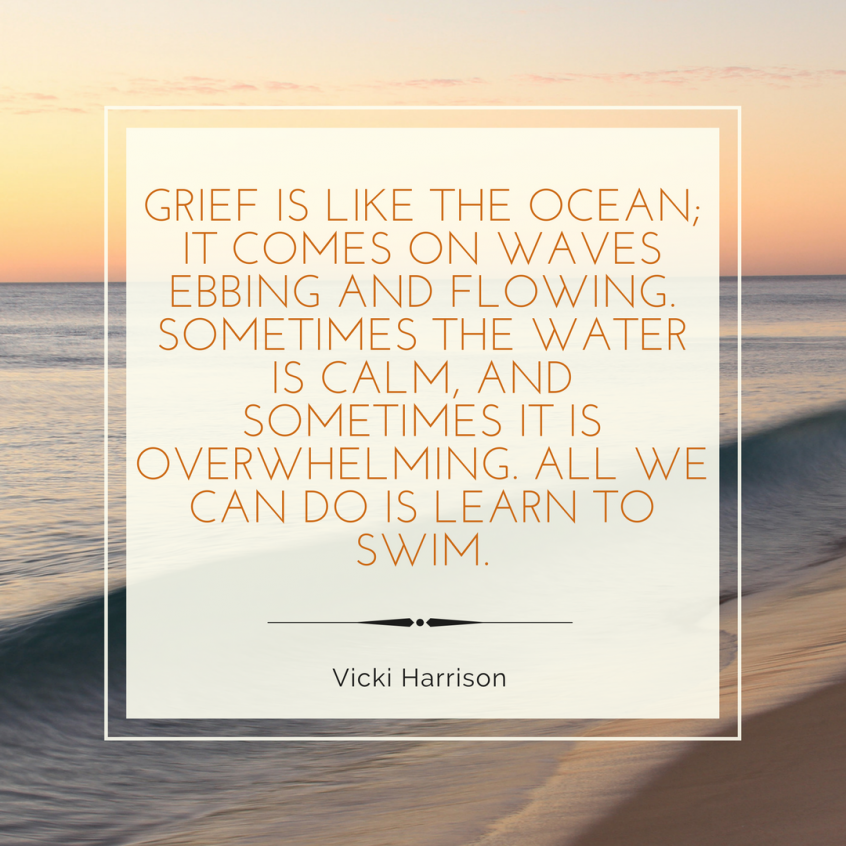Grief will touch us all at some point in our life. For me, it was when I assisted the death of my 18 year old dog, Cassie. I have never experienced something so earth shattering. My life wasn’t the same for sometime.
We often hear of grief as an experience felt after the death of a loved one, but in fact, grief is experienced with the loss of anything we hold dear. For example, our health, our careers, and our possessions. When we lose such things, by choice or otherwise, we will feel grief.
In her ground breaking research investigating the emotional experiences of palliative care patients and their families, Elizabeth Kubler Ross discovered the five stages of grief model. These five stages are:
Denial
Anger
Bargaining
Depression
Acceptance
The five stages of grief are what you can expect when you are grieving but not in a linear fashion. It is more than likely you will find yourself moving in and out of these stages, spending varying amounts of time in each one, both before (if you are aware of the pending death), and after the death. I found my grief was a mixture of all five stages with a tendency to sit in the depression stage the longest with only short times in the other stages.
To help you understand your’s or a loved one’s grief and what to do, watch the video provided below. I often share this video with my clients and they find it extremely helpful.
Video link: https://youtu.be/X55TJRj9HUk
So, the important points here are:
- There’s no script!
- There’s no way to escape grief!
- There are ways you can respond to help support yourself in that moment!
Here are a few tips I tend to share with clients who are working on developing helpful coping responses to their grief:
- Learn to accept your grief. Not because you like it or want it, but because it is already here. Grief is inevitable but your response is not. You have a choice between fighting/struggling with it/doing what makes it worse or allowing/accepting it/doing what helps support it. It’s up to you.
- Ask yourself what this grief is telling you about what is important to you. What it tells you about the person you are? Often grief tells us we care, we love. Next time you notice your grief connect with this message. I know for me it tells me about my capacity to love, nurture and support another. I get much solace from knowing this is what I had with my Cassie and have with others who are still present with me today.
- Create a ritual or symbol, something that helps you embrace your grief. For me it is a number of things including a tattoo on my wrist which I can look at whenever I want and a song by Linkin Park called ‘One More Light’.
- Practice meditation focused on bringing compassion to your grief. Below is an audio file of a compassion meditation for grief. A word of caution though for those of you who haven’t done meditation before – you may find this hard to do and may be better off engaging in non-meditative techniques first and move to meditation later.
Meditation: Compassionate Response to Grief:
To find out more on how you can help yourself or a loved one experiencing grief click on the web link below to read renowned therapist Dr Russ Harris’s Acceptance and Commitment Therapy (ACT) approach to grief.
Web Link: https://contextualscience.org/print/blog/act_grief
If you are finding it hard to cope with your own grief, I urge you to pursue psychological support. Grief can turn into clinical depression when there aren’t effective coping responses in place. Any one of our psychologists, including myself will be able to assist you. Call to speak with our friendly receptionist team on 3822 9983 to make an appointment.
Share this Post

